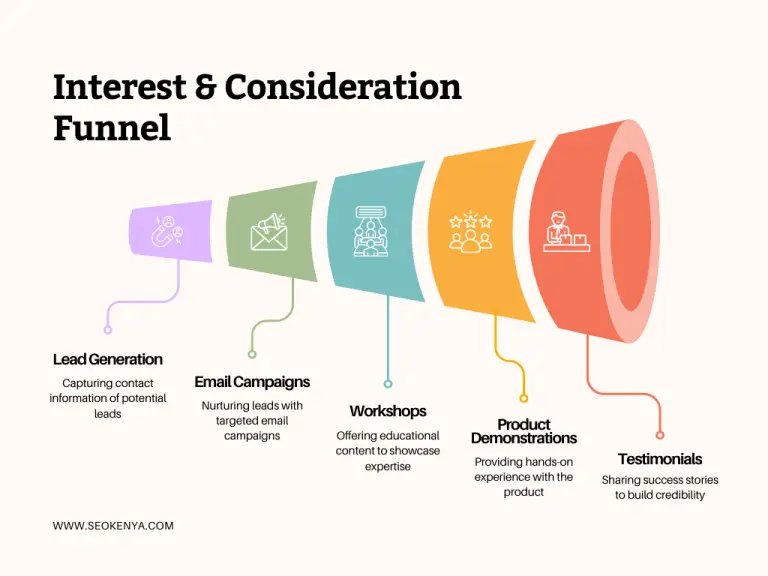Inbound Links: Definition and Their Role in SEO
Inbound links, also known as backlinks, are crucial for search engine optimization (SEO) as they play a significant role in determining the authority and trustworthiness of your website.
These links originate from other websites and direct traffic to your own, signaling to search engines that your site is reputable and relevant in a particular subject.
Inbound links can improve your site’s visibility, search engine rankings, and drive referral traffic. To effectively utilize inbound links, they should come from reputable websites, use relevant anchor texts, and be obtained through organic and effective link-building strategies.
Key Takeaways:
- Inbound links, also known as backlinks, are links from other websites to your own.
- They signal authority and trustworthiness to search engines, boosting your site’s ranking.
- Quality and relevance of inbound links are crucial for SEO success.
- Effective link-building strategies involve creating high-quality content and building relationships with reputable websites.
- Anchor texts should be relevant and descriptive for maximum impact.

What Are Inbound Links and Why Do They Matter?
Inbound links, also known as backlinks, are links that originate from other websites and point to your site. These links serve as an essential factor in search engine optimization (SEO) by indicating to search engines that your website is authoritative and relevant in a particular subject.
Inbound links play a crucial role in improving your website’s visibility and search engine rankings.
One of the main reasons inbound links matter is the boost they provide to your website’s link authority. Link authority refers to the perceived trustworthiness and credibility of your site based on the quality and quantity of inbound links it receives.
When reputable websites link to your content, search engines recognize your site as a reliable source of information, leading to higher rankings in search results.
In addition to enhancing link authority, inbound links also bring referral traffic to your site. Referral traffic refers to the visitors who arrive on your site by clicking on a link from another website.
The volume of traffic generated from inbound links depends on the traffic volume of the referring website. By gaining inbound links from websites with high traffic, you can significantly increase the exposure of your website and potentially attract a larger customer base.
Table: Importance of Inbound Links
| Benefits | Description |
|---|---|
| Visibility Boost | Inbound links improve your website’s visibility in search results, increasing the likelihood of attracting organic traffic. |
| Website Rankings | Search engines consider inbound links as a vote of confidence in your website, leading to higher search engine rankings. |
| Referral Traffic | Inbound links drive referral traffic from other websites, increasing your website’s exposure and potential customer base. |
| Link Authority | By gaining inbound links from reputable sources, your website’s link authority improves, signaling to search engines that your content is trustworthy and authoritative. |
Overall, inbound links are a vital component of SEO that can significantly impact your website’s visibility, rankings, and traffic. By focusing on building high-quality and relevant inbound links, you can enhance your website’s authority and attract a greater audience to your content.
Building Inbound Links: Strategies and Best Practices
When it comes to building inbound links, there are several strategies and best practices to consider. The first step is to source links from authoritative sources that are relevant to your industry or niche. These sources can greatly enhance the credibility of your website and signal to search engines that your content is trustworthy.
Avoid shortcuts and focus on natural link growth. This involves creating high-quality content that other websites will naturally want to link to. By offering valuable and informative content, you increase the chances of attracting organic inbound links. Remember, quality is key.
Another important aspect is anchor text optimization. When creating inbound links, it’s crucial to optimize the anchor text. Ensure that it is descriptive and natural, as this can significantly enhance the value of the link and improve your website’s visibility in search engine rankings.
Building relationships with other website owners is also an effective strategy. By reaching out and connecting with relevant industry influencers or website owners, you can explore potential collaborations and opportunities for link placements. Networking is vital in the world of link building.
To streamline your efforts and gain valuable insights, make use of link analysis tools. These tools can help you identify existing inbound links, analyze their quality, and track your competitors’ link profiles.
By staying on top of your link-building strategy and regularly refining it based on the data you acquire from these tools, you can ensure long-term success in acquiring high-quality inbound links.
FAQ
What are inbound links?
Inbound links, also known as backlinks, are links from other websites that point to your own website.
Why are inbound links important for SEO?
Inbound links play a crucial role in SEO by signaling to search engines that your website is authoritative and trustworthy. They can boost your site’s authority, improve search engine rankings, and drive referral traffic.
Where should inbound links come from?
Inbound links should come from reputable websites that are relevant to your industry or niche.
How can I build high-quality inbound links?
Strategies for building high-quality inbound links include creating high-quality content, generating organic link growth, and building relationships with other website owners for potential link placements.
What is anchor text optimization?
Anchor text optimization involves using relevant and descriptive anchor text within inbound links to enhance their value.
How can link analysis tools help in building inbound links?
Link analysis tools can help identify existing inbound links and track competitor link profiles, providing insights and opportunities for building high-quality inbound links.
Why is it important to regularly analyze and refine my link-building strategy?
Regularly analyzing and refining your link-building strategy is important for long-term success in acquiring high-quality inbound links and improving your website’s visibility and rankings.




